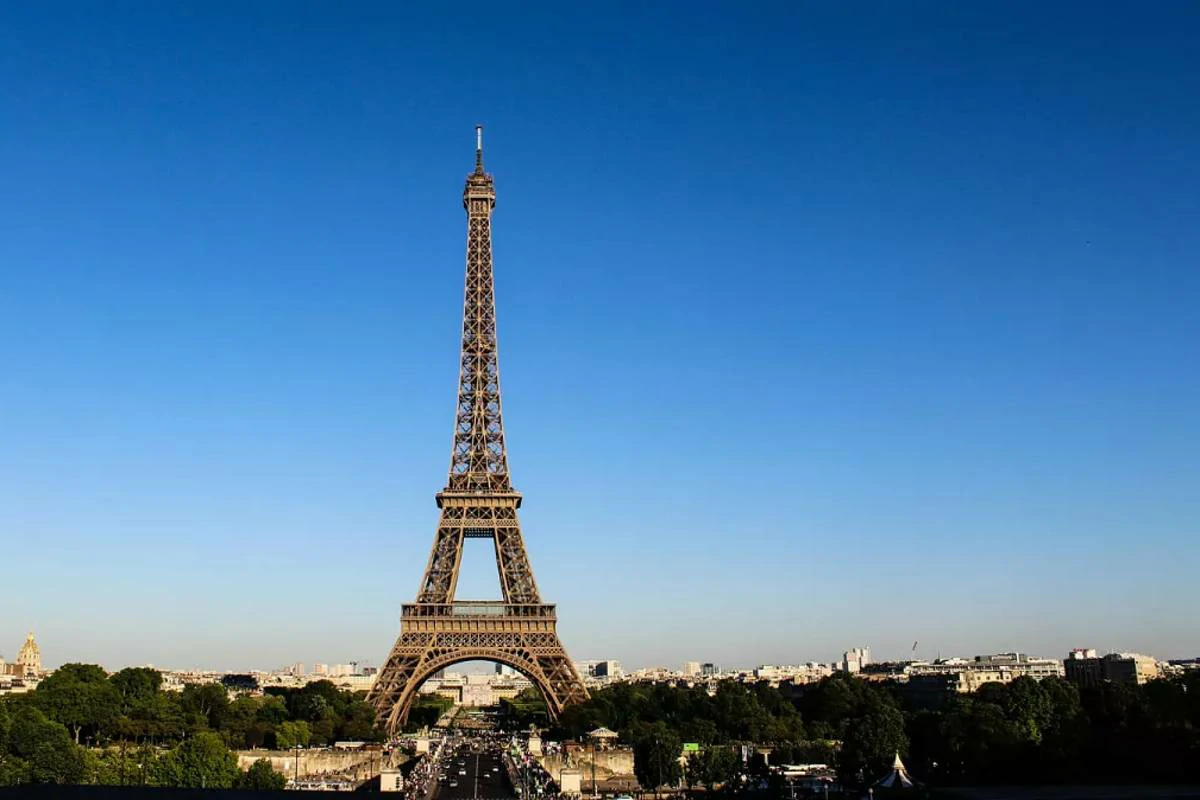Is Paris expensive? Answer is – Yes, Paris is generally considered an expensive city, especially compared to other European destinations. Accommodation, dining out, and attractions can be pricey. However, it’s possible to visit Paris on a budget by making smart choices like staying in budget-friendly accommodations, eating at local bistros or markets, and taking advantage of free attractions and activities.
Summary
- Paris is the 2nd most expensive city worldwide.
- Accommodation, dining, and attractions can be pricey.
- Budgeting is crucial for an affordable trip.
- Cost-saving tips include opting for budget accommodations, dining at local eateries or markets, utilizing public transportation, and enjoying free attractions.
- Research and planning can lead to a memorable and affordable Parisian experience.
Is Paris Expensive?

Paris, the City of Lights, with its iconic Eiffel Tower, charming cafes, and world-class museums, is a dream destination for many travelers.
However, it also has a reputation for being expensive. But is Paris truly as pricey as they say? And is it possible to experience the magic of Paris without breaking the bank?
Why is Paris considered expensive?
Several factors contribute to Paris’s reputation for being an expensive city:
High Cost of Living: Paris consistently ranks among the most expensive cities globally in terms of the cost of living. This translates to higher prices for accommodation, dining, and everyday expenses. According to the Economist Intelligence Unit’s Worldwide Cost of Living 2021 report, Paris tied with Singapore as the second most expensive city in the world.
Tourist Demand: Paris is a major tourist hub, attracting millions of visitors each year. This high demand, coupled with limited supply, drives up prices for accommodation, especially during peak seasons.
Luxury Goods and Experiences: Paris is renowned for its luxury brands, high-end fashion, and gourmet dining. These options cater to those seeking upscale experiences, but they also contribute to the overall perception of the city as expensive.
Strong Euro: The Euro, the currency used in France, is relatively strong compared to other currencies. This can make Paris feel more expensive for travelers from countries with weaker currencies.
Is it possible to visit Paris on a budget?
Absolutely! While Paris can be expensive, it’s definitely possible to experience the city’s charm without overspending. Budget-conscious travelers can make strategic choices to minimize their expenses.
Accommodation: Opt for budget-friendly options like hostels, guesthouses, or apartments. Consider staying in neighborhoods slightly further from the city center, as they often offer more affordable rates.
Dining: Explore local markets, bakeries, and bistros for delicious and affordable meals. Avoid touristy restaurants and consider having picnics in parks.
Transportation: Utilize the city’s efficient public transportation system, including the metro and buses. Purchase a travel pass for unlimited rides.
Attractions: Many of Paris’s most iconic attractions, like strolling along the Seine River or visiting the Notre Dame Cathedral, are free. Take advantage of these opportunities.
Rick Steves Expert Opinion
According to travel expert Rick Steves, “Paris is a walkable city, and many of its most charming neighborhoods are best explored on foot. Not only is walking free, but it also allows you to discover hidden gems and soak in the city’s atmosphere.”
Accommodation

Paris offers a wide range of accommodation options to suit every budget and preference. However, finding the right place to stay can be a challenge, especially for those seeking affordability.
Let’s explore the average hotel prices, budget-friendly alternatives, and tips for securing the best deals.
1. Average Hotel Prices in Paris
According to data from Hotels.com, the average price for a hotel room in Paris in 2023 was around €180 per night. However, prices vary significantly depending on the location, star rating, and season.
Luxury hotels in central areas like the 1st and 8th arrondissements can easily exceed €500 per night, while budget hotels in less central areas might be found for around €80 per night.
2. Budget-Friendly Alternatives
Hostels: Hostels are a popular choice for solo travelers and backpackers seeking affordable accommodation. Many hostels in Paris offer dormitory beds for as low as €20 per night, while private rooms can range from €40 to €80 per night. Popular hostels include St Christopher’s Inn Gare du Nord and The People Hostel – Paris Nation.
Guesthouses: Guesthouses, also known as chambres d’hôtes, offer a more intimate and personalized experience than hotels. They are often located in charming apartments or historic buildings and provide a glimpse into Parisian life. Prices for guesthouses can range from €60 to €150 per night.
Apartments: Renting an apartment through platforms like Airbnb or Vrbo can be a cost-effective option, especially for longer stays or groups. Prices for apartments vary depending on the size, location, and amenities, but you can often find studios or one-bedroom apartments starting around €60 per night.
3. Tips for Finding Affordable Accommodation
Book in Advance: Hotel prices tend to increase as the travel date approaches, so booking your accommodation in advance can help you secure better deals.
Consider Off-Peak Season: Traveling during the shoulder seasons (spring or fall) or the winter months can often lead to lower prices.
Look Beyond the City Center: While staying in central Paris might be convenient, venturing out to the outer arrondissements or nearby suburbs can offer more affordable options without sacrificing accessibility.
Utilize Price Comparison Websites: Use websites like Kayak or Booking.com to compare prices across different platforms and find the best deals.
Read Reviews: Before booking any accommodation, read reviews from previous guests to get an idea of the quality and value for money.
Pauline Egge Expert Opinion
Parisian local and travel blogger Pauline Egge recommends, “If you’re looking for a unique and affordable stay in Paris, consider staying in a boutique hotel in a less touristy neighborhood. These hotels often offer charm and character at a fraction of the price of larger hotels in the city center.”
Dining

Paris is a culinary paradise, renowned for its delectable pastries, fresh produce, and world-class dining experiences. However, eating out in the city can quickly become a pricey affair.
Let’s explore the typical costs of dining, discover budget-friendly options, and uncover tips for saving money on food during your Parisian adventure.
1. Cost of Dining Out in Paris
The cost of dining out in Paris varies significantly depending on the type of establishment, location, and menu choices. Here’s a general overview of the average costs:
Michelin-starred restaurants: Expect to pay upwards of €200 per person for a tasting menu at a renowned Michelin-starred restaurant.
Upscale restaurants: A meal at a fine-dining establishment can cost around €80-€150 per person.
Mid-range restaurants: Bistros and brasseries offer a more casual dining experience with main courses averaging €20-€40.
Budget-friendly options: Local eateries, cafés, and ethnic restaurants often have set menus or daily specials for around €15-€25.
2. Budget-Friendly Dining Options
Local Bistros: These charming establishments offer classic French dishes at reasonable prices. Look for “formules” or set menus, which typically include an appetizer, main course, and dessert at a fixed price.
Markets: Paris is home to numerous vibrant markets where you can find fresh produce, cheeses, charcuterie, and prepared foods. Consider grabbing ingredients for a picnic or enjoying a casual lunch at a market stall.
Bakeries: Indulge in croissants, pain au chocolat, and other delectable pastries at one of Paris’s many boulangeries. These affordable treats are perfect for breakfast or a snack on the go.
Ethnic Restaurants: Paris boasts a diverse culinary scene, with restaurants representing cuisines from around the world. Often, these establishments offer delicious and affordable meals.
3. Tips for Saving Money on Food
Picnic in Parks: Embrace the Parisian tradition of picnicking in one of the city’s many parks. Purchase fresh ingredients from a market or boulangerie and enjoy a leisurely meal outdoors.
Self-Catering: If you have access to a kitchen, consider preparing some of your meals. This can significantly reduce your food expenses.
Lunch Specials: Many restaurants offer prix-fixe menus or “formules” for lunch, which are typically more affordable than dinner options.
Happy Hour: Some bars and restaurants offer happy hour specials with discounted drinks and appetizers.
Tap Water: Don’t hesitate to ask for tap water (“carafe d’eau”) at restaurants, as it’s free and safe to drink.
Clotilde Dusoulier Expert Opinion
Food writer and Paris resident Clotilde Dusoulier recommends, “Look for restaurants that are popular with locals rather than tourists. These places often offer better value for money and a more authentic Parisian dining experience.”
Transportation

Paris boasts an extensive and efficient public transportation network, making it easy to explore the city without relying on expensive taxis or car rentals.
However, transportation costs can add up, so it’s essential to be aware of the options and utilize strategies to minimize expenses.
1. Cost of Public Transportation in Paris
The primary public transportation options in Paris are the metro, bus, tram, and RER (regional train network). The base fare for a single-use ticket (t+ ticket) is €1.90, and it’s valid for one metro journey, one bus or tram journey, or one RER journey within Paris (zones 1-3). You can also purchase a carnet of 10 t+ tickets for €16.90, offering a slight discount.
For those planning to use public transportation frequently, consider purchasing a Navigo pass. This reloadable card provides unlimited travel within specific zones for a week or a month. A weekly Navigo pass for all five zones costs €22.80, while a monthly pass costs €75.20.
2. Tips for Saving Money on Transportation
Walk or Bike: Paris is a very walkable city, and many attractions are within a reasonable distance of each other. Consider walking or renting a bike to explore the city and save on transportation costs. Vélib’, Paris’s bike-sharing system, offers affordable rates for short-term rentals.
Purchase a Navigo Pass: If you plan to use public transportation frequently, a Navigo pass can be a cost-effective option.
Purchase Carnets: Buying a carnet of 10 t+ tickets offers a small discount compared to purchasing individual tickets.
Avoid Peak Hours: If possible, avoid traveling during peak hours (7:30-9:30 am and 5:00-7:00 pm), as fares may be slightly higher during these times.
Take Advantage of Free Transportation: Some hotels and hostels offer complimentary shuttle services to and from major attractions or transportation hubs. Additionally, certain tourist passes, like the Paris Visite Pass, include unlimited public transportation.
Jean-Paul Hubert Expert Opinion
According to Jean-Paul Hubert, a transportation expert at the Paris Convention and Visitors Bureau, “Walking and biking are not only great ways to save money on transportation but also offer a unique perspective of the city. You can discover hidden gems and immerse yourself in the local atmosphere.”
Attractions

Paris, a city steeped in history and culture, offers a plethora of attractions that cater to all interests. While some iconic landmarks come with a price tag, many others are free to enjoy, allowing you to experience the city’s charm without overspending.
Let’s explore the costs of popular attractions, discover the hidden gems that won’t cost you a dime, and uncover strategies for maximizing your sightseeing budget.
1. Cost of Popular Attractions in Paris
Eiffel Tower: Tickets for the Eiffel Tower vary depending on the level you wish to visit and whether you take the stairs or the elevator. Prices start at €10.70 for access to the second floor by stairs and go up to €28.30 for a summit ticket with elevator access.
Louvre Museum: A standard ticket to the Louvre costs €17, but you can save money by purchasing a combined ticket with other museums or attractions. Free admission is available on the first Sunday of every month from October to March.
Palace of Versailles: A one-day passport to the Palace and Gardens of Versailles costs €20 on weekdays and €27 on weekends and holidays.
Musée d’Orsay: The entrance fee for the Musée d’Orsay is €16, with reduced rates available for certain groups.
2. Free Attractions and Activities
Notre Dame Cathedral: Although the cathedral is currently undergoing restoration following the devastating fire in 2019, you can still admire its exterior and visit the surrounding square free of charge.
Jardin du Luxembourg: This beautiful garden is a popular spot for relaxation and people-watching. It’s free to enter and offers stunning views of the palace.
Sacré-Coeur Basilica: Located in the charming Montmartre neighborhood, the basilica offers free admission and panoramic views of the city.
Promenade Plantée: This elevated linear park, built on a former railway line, is a unique and free attraction for a leisurely stroll.
Canal Saint-Martin: Wander along the picturesque Canal Saint-Martin, lined with trendy bars and cafés, for a free and enjoyable experience.
3. Tips for Saving Money on Attractions
Paris Museum Pass: If you plan on visiting multiple museums and monuments, consider purchasing a Paris Museum Pass. It grants access to over 60 museums and monuments, including the Louvre, Musée d’Orsay, and Arc de Triomphe.
Free Museum Days: Many museums offer free admission on certain days or at specific times. Do your research to find out which museums offer free entry.
Walking Tours: Join a free walking tour to discover the city’s hidden gems and learn about its history and culture. Several companies offer free walking tours, including Sandeman’s New Europe Tours and Discover Walks.
Visit Parks and Gardens: Paris is home to numerous parks and gardens that are free to enter and offer a peaceful escape from the city’s hustle and bustle.
Window Shopping: Stroll along the fashionable streets of Paris and admire the beautiful window displays without spending a dime.
Isabelle Dubois Expert Opinion
Local guide and historian Isabelle Dubois advises, “Don’t limit yourself to the famous landmarks. Explore the charming neighborhoods, wander through the local markets, and discover the hidden gems that make Paris truly unique. Some of the best experiences in Paris are free.”
Additional Expenses

While accommodation, dining, and attractions constitute the bulk of your expenses in Paris, there are additional costs to consider, such as shopping, entertainment, and souvenirs.
These expenses can easily add up, so it’s important to budget wisely and prioritize what matters most to you.
1. Shopping
Paris is a shopper’s paradise, with a wide range of options from high-end designer boutiques to charming flea markets. If you’re planning to indulge in some retail therapy, be prepared to spend a significant amount.
However, there are ways to shop on a budget in Paris:
- Flea Markets: Explore the city’s flea markets, such as Marché aux Puces de Saint-Ouen, for unique finds and vintage treasures at affordable prices.
- Department Stores: Even if you’re not planning to splurge, visit iconic department stores like Galeries Lafayette and Printemps for a glimpse into Parisian fashion and architecture.
- Local Boutiques: Venture off the beaten path and discover local boutiques for unique souvenirs and gifts.
- Window Shopping: Simply strolling along the streets of Paris and admiring the window displays can be a delightful and free activity.
2. Entertainment
Paris offers a vibrant nightlife and entertainment scene, with options ranging from cabaret shows to jazz clubs. However, these activities can be costly. Here are some tips for enjoying Parisian entertainment on a budget:
- Free Concerts: Many parks and squares in Paris host free concerts and performances throughout the year. Check local listings for upcoming events.
- Street Performers: Stroll along the Seine River or through popular squares like Place des Vosges to enjoy the talents of street performers.
- Happy Hour Deals: Many bars and pubs offer discounted drinks during happy hour.
- Movie Theaters: Catch a film at one of Paris’s many movie theaters for a more affordable evening out.
3. Souvenirs
Bringing home a piece of Paris is a must for many travelers, but souvenirs can quickly add up. Here are some tips for finding affordable souvenirs:
- Local Markets: Markets are great places to find unique and handmade souvenirs at lower prices than souvenir shops.
- Postcards and Stamps: Send a postcard to loved ones back home for a personal and affordable souvenir.
- Local Food Products: Consider bringing back some local delicacies, such as chocolate, mustard, or spices, as gifts or for yourself.
Budgeting for Your Trip

A well-planned budget is your financial compass for navigating the City of Lights without losing sight of your financial goals.
Let’s break down the process of creating a realistic budget, tracking your expenses, and adjusting as needed to ensure a financially responsible and enjoyable trip.
1. Creating a Realistic Budget
Research Average Costs: Before you even book your flights, research the typical costs of accommodation, food, transportation, attractions, and activities in Paris. Websites like Budget Your Trip and Numbeo provide valuable data on average expenses.
Set Daily Spending Limits: Determine a daily spending limit that aligns with your overall budget and travel style. Remember to factor in unexpected expenses, like souvenirs or spontaneous purchases.
Utilize Budgeting Tools: There are numerous online budgeting tools and apps, like Mint or Trail Wallet, that can help you track your expenses and stay on track.
Prioritize: Decide which aspects of your trip are most important to you and allocate more funds to those areas. For example, if you’re a foodie, you might want to splurge on dining experiences, while if you’re a history buff, you might prioritize museum admissions.
2. Tracking Your Expenses
Keep Receipts: Save all your receipts, whether it’s for a croissant at a local bakery or a museum ticket. This will help you track your spending and identify areas where you might be overspending.
Use a Budgeting App: Consider using a budgeting app to log your expenses in real-time. This can give you a clear picture of your spending habits and help you make informed decisions about your remaining budget.
Review Regularly: Take some time each day or at the end of your trip to review your expenses. This can help you identify patterns and adjust your spending accordingly.
3. Adjusting Your Budget as Needed
Be Flexible: Unexpected expenses can arise during any trip. Be prepared to adjust your budget as needed. If you overspend in one area, try to compensate by cutting back in another.
Look for Free Activities: Paris offers a wealth of free activities, such as visiting parks, exploring neighborhoods, or attending free cultural events. Take advantage of these opportunities to save money.
Prioritize Experiences: Remember that the most memorable experiences often don’t come with a hefty price tag. Focus on creating lasting memories rather than accumulating material possessions.
Nomadic Matt Expert Opinion
Travel blogger and budget expert Nomadic Matt advises, “The key to budgeting for a trip is to be realistic and flexible. Don’t set unrealistic expectations or try to stick to a rigid plan. Allow yourself some wiggle room and be open to adjusting your budget as needed.”
Is Paris Worth the Cost?
The question of whether Paris is worth the cost is subjective and depends on your individual priorities and travel style. Let’s weigh the pros and cons to help you determine if a trip to the City of Lights is right for you.
1. Weighing the pros and cons
Pros
Iconic Landmarks: Paris boasts world-renowned landmarks like the Eiffel Tower, Louvre Museum, and Notre Dame Cathedral, offering a unique blend of history, art, and culture.
Culinary Delights: From croissants and pastries to Michelin-starred restaurants, Paris is a food lover’s paradise.
Romantic Atmosphere: With its charming streets, quaint cafés, and scenic river views, Paris exudes a romantic ambiance that’s hard to resist.
Cultural Richness: The city’s museums, galleries, and theaters offer a wealth of cultural experiences.
Fashion Capital: Paris is a global fashion hub, with high-end boutiques and trendy shops lining its streets.
Cons
High Costs: As discussed earlier, Paris is one of the most expensive cities in the world, and expenses can quickly add up.
Crowds: Popular attractions can be overcrowded, especially during peak seasons.
Tourist Traps: Beware of tourist traps that may offer overpriced goods and services.
Pickpockets: Be mindful of your belongings, as pickpocketing can be a concern in crowded areas.
2. Determining if Paris is Right for You
Consider your budget, interests, and travel style when deciding whether a trip to Paris is worth the cost. If you’re willing to plan carefully, prioritize experiences, and make savvy choices, you can absolutely enjoy a memorable and affordable Parisian adventure.
Ultimately, the decision of whether Paris is worth the cost is a personal one. If you’re drawn to the city’s charm, history, and culture, and you’re willing to navigate its expenses, then a trip to Paris can be a truly rewarding experience.
What Does It Mean for Travelers?

The high cost of living in Paris can deter some travelers, especially those on a tight budget. However, it’s important to remember that the city offers a wealth of experiences that can be enjoyed regardless of your spending power.
Impact of High Costs on Tourism
The high costs in Paris can impact tourism in several ways:
- Deterrent for Budget Travelers: Some travelers may choose alternative destinations due to the perceived high costs of visiting Paris.
- Shorter Stays: Visitors may opt for shorter stays to manage expenses.
- Limited Spending: Travelers may be more cautious with their spending, impacting local businesses.
Tips for Planning a Trip Despite the Expenses
- Set a Realistic Budget: Before booking your trip, research the average costs and create a detailed budget that you can stick to.
- Travel During Off-Season: Consider visiting during the shoulder seasons (spring or fall) or the winter months when prices for accommodation and flights tend to be lower.
- Look for Deals and Discounts: Research discounts on attractions, transportation, and activities.
- Prioritize Free Activities: Paris offers a plethora of free attractions, such as parks, gardens, and historical landmarks. Take advantage of these opportunities.
- Cook Your Meals: If you have access to a kitchen, consider preparing some of your meals to save on dining costs.
Conclusion
Paris, a city of dreams and enchantment, beckons travelers with its timeless allure. While the city’s reputation for being expensive is not entirely unfounded, with careful planning and mindful choices, it’s entirely possible to experience the magic of Paris without breaking the bank.
By opting for budget-friendly accommodations, exploring local eateries, utilizing public transportation, and seeking out free attractions, you can create a memorable and affordable Parisian experience. Remember, the true essence of Paris lies not in its price tag, but in its ambiance, culture, and the joy of discovering its hidden gems.
FAQs
Is Paris more expensive than other European cities?
Yes, Paris is generally considered more expensive than other major European cities like Rome, Berlin, or Madrid. However, it’s comparable in price to London.
When is the cheapest time to visit Paris?
The cheapest time to visit Paris is during the winter months (November to February), excluding the holiday season.
How much money should I budget for a trip to Paris?
The amount you should budget depends on your travel style and preferences. However, a general estimate for a week-long trip for a budget traveler is around €700-€1000, while a mid-range traveler might expect to spend €1500-€2500.
Are there any hidden costs to be aware of?
Some hidden costs to be aware of include tourist taxes, tips, and additional fees for baggage or Wi-Fi.
What are some common tourist traps to avoid?
Common tourist traps include overpriced restaurants near major attractions, souvenir shops selling low-quality items, and unofficial tour guides.
How can I make the most of my trip to Paris on a budget?
To make the most of your trip on a budget, prioritize free activities, take advantage of discounts, utilize public transportation, and consider staying in accommodations outside the city center.







